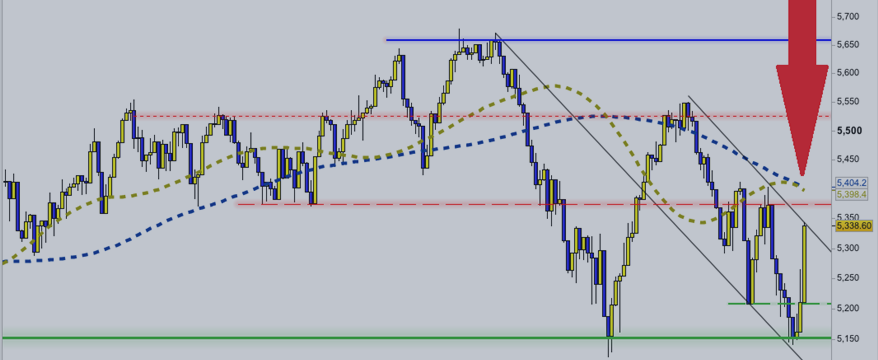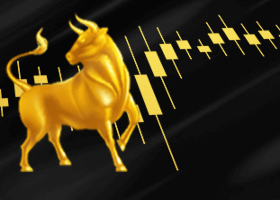From Greg Canavan in Albert Park: --The Aussie market is set to follow up Friday’s massive rally with further gains today, although the action will be much more subdued. And with Christmas just a few days away, volumes will be much lower. --Anyway, all the fireworks occurred last week. Markets were on the cusp of a meltdown, then experienced a melt-up. The ASX 200 finished up last week with a 124 point gain on Friday… the biggest rally in over 18 months. --So what exactly is behind the melt-up on global markets? Is it the Fed, as is widely believed, or is there something else at play? --I’ll look into that in a moment. But first keep in mind that rallies like this are usually the product of ‘short-covering’. That’s when traders who previously made bets on falling markets have to suddenly reverse those bets due to a change in circumstances. --Reversing bets means they have to buy back whatever asset or security they previously borrowed and sold. This adds buying power to the market and results in huge and sharp moves to the upside. --The obvious change in circumstance last week was an appearance from the all seeing and omnipotent Fed. They shuffled some words around on a piece of paper and the market — apparently — loved it. --While no doubt the Fed had some effect on market sentiment, it’s worth asking what else is going on. After reading Doug Nolan’s Credit Bubble Bulletin on the weekend (a bloke whose work I often quote from here at the Daily Reckoning) it seems there’s another angle to this vicious rally. Here’s how Doug saw it…
--It’s certainly been all about Russia this past week or so. The oil price collapse threatens to take down its economy…the ramifications of which are completely unknown. --Which is probably why the market turned so nasty last week. The fall in oil prices makes many projects uneconomic, and many companies, who have issued lots of debt, vulnerable. In addition, you have sharply falling emerging market currencies (across the board, including Australia) putting a massive strain on the global financial system. --And this is where the Fed comes into it. Ambrose Evans-Pritchard at the UK Telegraph had a different take on the Fed’s actions (or lack thereof) last week…
--So last week, with Russia on the brink and emerging markets in general under pressure, traders tried to protect against downside risk by buying market ‘insurance’. As Doug explained, this insurance comes in the form of a derivative contract. --Not just one derivative contract. There are many different types of insurance you can take out. But who is the insurer… and do they have the capital reserves to pay out if you need to claim? --Of course not. Derivatives are a largely unregulated market…unlike the actual insurance industry, which must hold reserves against the risks it insures. --Doug explains how it works…
--Which is why you’re seeing big swings in both directions lately. First, concerns over Russia send the market (and the machines) into a panic. Then, when it looked like China might help Russia out, the panic reverses as bearish trades are unwound. --In 1998, the Russian bond default sent markets into a tailspin. It brought down the highly leveraged bond fund Long Term Capital Management (LTCM). The Fed had to step in and bail them out, a liquidity injection which pretty much led to the tech bubble peaking in early 2000. --This time around, the system is way more leveraged and susceptible to problems. That doesn’t mean Russia will default again. But it does mean there are many different areas where problems could emerge. --As 2014 draws to a close, it’s a good reminder that the global economy and the financial system are not getting healthier. They’re getting sicker. And while policymakers continue to treat the symptoms, and not the cause, they will keep on getting worse. Greg Canavan, |



